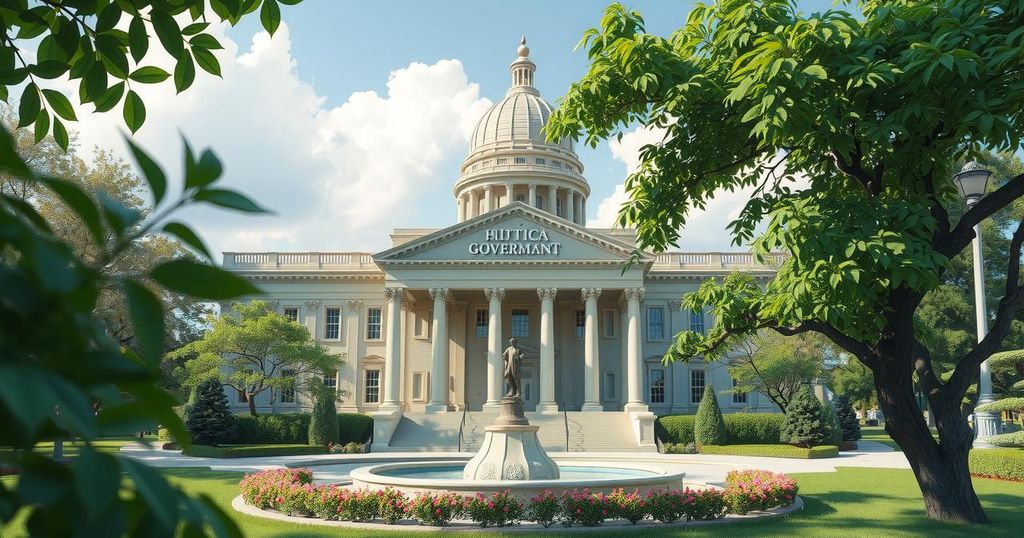Gabon Votes for New Constitution Amid Controversy and Governance Changes

Gabon conducted a referendum where provisional results showed that 91.8% of voters approved a new constitution. The constitutional amendments aim to limit presidential terms and ensure candidates are exclusively Gabonese. There were concerns about transparency, even as the military junta led an advocacy campaign. Overall voter turnout was at 53.54%, with no significant incidents reported during the process.
The provisional results published by Gabon’s military rulers reveal that the new constitution has been overwhelmingly approved in a recent referendum. With about 860,000 registered voters participating, officials encouraged participation through various media outlets, urging citizens to cast their votes either in favor or against the proposed changes. The constitution introduces limits on presidential terms, removes the position of prime minister, and prohibits hereditary leadership transfers.
According to the Committee for the Transition and Restoration of Institutions (CTRI), 91.8% of those who voted supported the new constitution. The voter turnout was reported at 53.54%, which is lower than earlier estimates of 71%. The voting process across 2,835 polling stations proceeded without any serious incidents, although a curfew was enforced to maintain order.
The new constitutional framework stipulates that presidential candidates must be Gabonese citizens, with at least one Gabonese-born parent and a Gabonese spouse. This provision effectively disqualifies former President Ali Bongo Ondimba and his offspring. Transitional President Brice Oligui Nguema described the referendum as a significant advancement and expressed confidence in the integrity of the voting process.
Amid a campaign heavily influenced by governmental propaganda, questions regarding transparency arose. Observers noted various campaign advertisements supporting a ‘yes’ vote, leading to skepticism about the referendum’s legitimacy. Nathalie Badzoko, a civil servant, remarked upon her vote of confidence toward the junta, though she admitted to not comprehending the entire constitution.
Critics of the proposed changes fear it may facilitate dictatorial rule, with lawyer Marlene Fabienne Essola Efountame warning of the consequences of empowering a leader who writes his own constitutional rules. The previous administration, led by Bongo, was often condemned for corruption and mismanagement, prompting public discontent.
Following the election, the interior ministry aimed for a transparent process, inviting international observers, although there were no observers present during the prior presidential election. As the results await confirmation from the constitutional court, recent surveys indicate a notable degree of public confidence in President Oligui, who is viewed favorably as the upcoming presidential election approaches.
Gabon, a resource-rich nation in Central Africa, has faced political instability and leadership turmoil, most recently resulting from a coup that deposed former President Ali Bongo Ondimba. Since the coup, the military regime has sought to establish a new constitutional framework that outlines the governance structure, focusing on limiting presidential power and ensuring future leadership is strictly Gabonese. The recent referendum signals a pivotal moment in Gabon’s political landscape, promising potential reform and a return to civilian rule after military intervention.
In conclusion, the recent referendum in Gabon appears to signify a substantial shift towards a new legal and political framework underpinned by military leadership. The overwhelming support for the new constitution could underpin future governance and leadership transitions within Gabon. However, critiques surrounding the legitimacy of the voting process and intentions of the current leadership underscore ongoing concerns regarding democratic practices and governance in the nation.
Original Source: www.tiogapublishing.com







